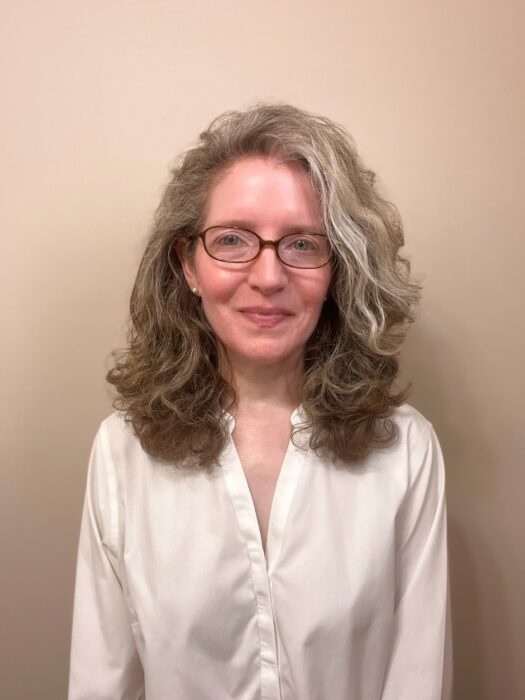The Institute’s newest faculty member brings experience in infectious disease research and enjoys finding the art in science

Donna Perry, D.V.M., Ph.D., a veterinary pathologist who joined Texas Biomedical Research Institute (Texas Biomed) this fall, was drawn to the Institute by its unique blend of academic research and industry partnerships.
“Texas Biomed has a compelling focus on infectious disease and offers everything from BSL-2 to BSL-4 laboratories,” said Dr. Perry, an Associate Professor. “There’s a lot of variety in the research that is performed here. It is academic in spirit, even though it’s not a university, and that was a big draw for me. It is also appealing to work closely with industry, which we do quite frequently.”
Dr. Perry spent her childhood in Massachusetts, surrounded by “everything from cats to horses, cows and sheep,” which helped foster an early love for animals. She gravitated toward science during her undergraduate degree at the University of Massachusetts, where she studied animal science.
Now, as a veterinary pathologist at Texas Biomed with the Southwest National Primate Research Center (SNPRC), Dr. Perry’s role involves histopathology, the microscopic study of tissues that have been affected by disease. Using advanced techniques, including immunohistochemistry and in situ hybridization (a way to localize a sequence of DNA or RNA in a biological sample), she is able to address complex research and diagnostic questions.
Dr. Perry describes histology as a “complex series of beautiful patterns.”
“Histology shows us what tissue looks like in its normal state. In different disease states, tissues respond in different patterns. Those patterns tell a story. Looking at tissues under the microscope is like looking at art,” she said.
The structure of each tissue is directly related to its function, and histopathology is the gold standard for the diagnosis of many diseases.
“When I first started to look at histopathology, I had a great interest in tissue response patterns to different insults and mechanisms, how response patterns informed us about potential etiologies. The association between structure and function has always been something that I find fascinating,” she said.
After completing her anatomic pathology residency at Cornell University, Dr. Perry pursued her Ph.D. in molecular pathology at Wake Forest University, North Carolina, which is home to a nonhuman primate research colony.
“Humans and animals share a significant number of infectious and genetic diseases. This understanding sparked my interest in working with primates from a comparative medicine standpoint – I wanted to attend Wake Forest for that reason specifically.”
Dr. Perry said her role at Texas Biomed, which involves working with investigators to help design and facilitate studies from the earliest stages, is very fulfilling, particularly given the opportunity to collaborate with colleagues.
“Most frequently, preclinical studies are designed to evaluate a candidate therapeutic. We are charged with helping colleagues select the appropriate model for that particular disease state and then with designing a study to determine whether the candidate therapeutic is safe and efficacious in that animal model.
“Evaluating a candidate therapeutic through preclinical safety, dosing, and efficacy studies that proceed to clinical trials is very rewarding,” said Dr. Perry.
Investigators come to veterinary pathologists to help answer questions in animal models after they’ve done their in vitro work in cell culture in the lab.
“I love hearing first what the hypothesis is, what their specific aims are, and thinking about how we can use animal models to precisely answer those questions,” she said.
Prior to joining Texas Biomed, Dr. Perry also spent time studying infectious disease at the National Institutes of Health (NIH) biosafety level 4 (BSL-4) labs at Fort Detrick, Maryland.
“I studied infectious disease, specifically high consequence viral pathogens, for the National Institute of Allergy and Infectious Diseases. During COVID, everything was expedited so we did many studies and found it very rewarding to be able to see the results so quickly,” she said.
Beyond supporting the research teams at Texas Biomed, Dr. Perry loves learning about flora and fauna and has been enjoying finding new plants and animals to observe in Texas.